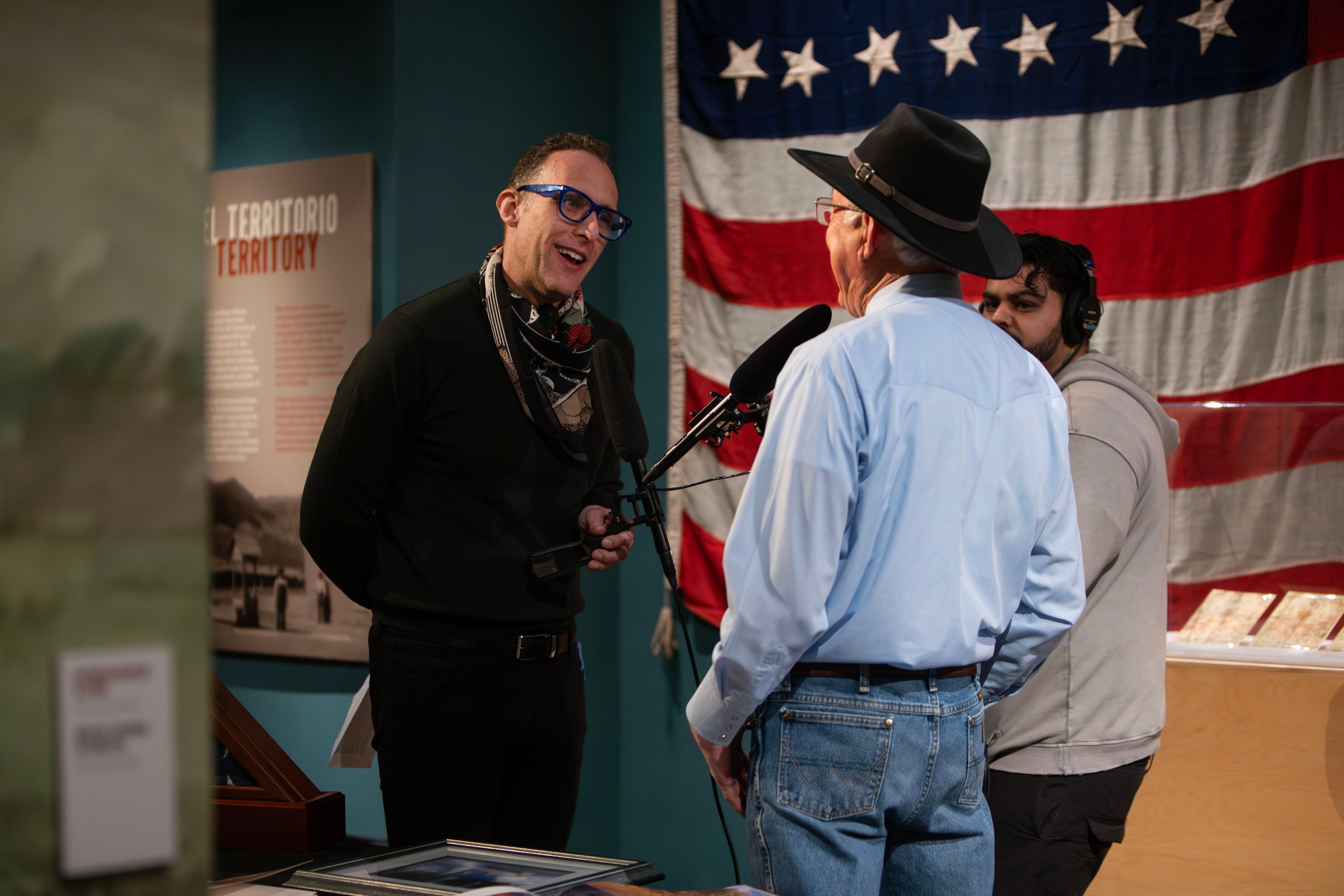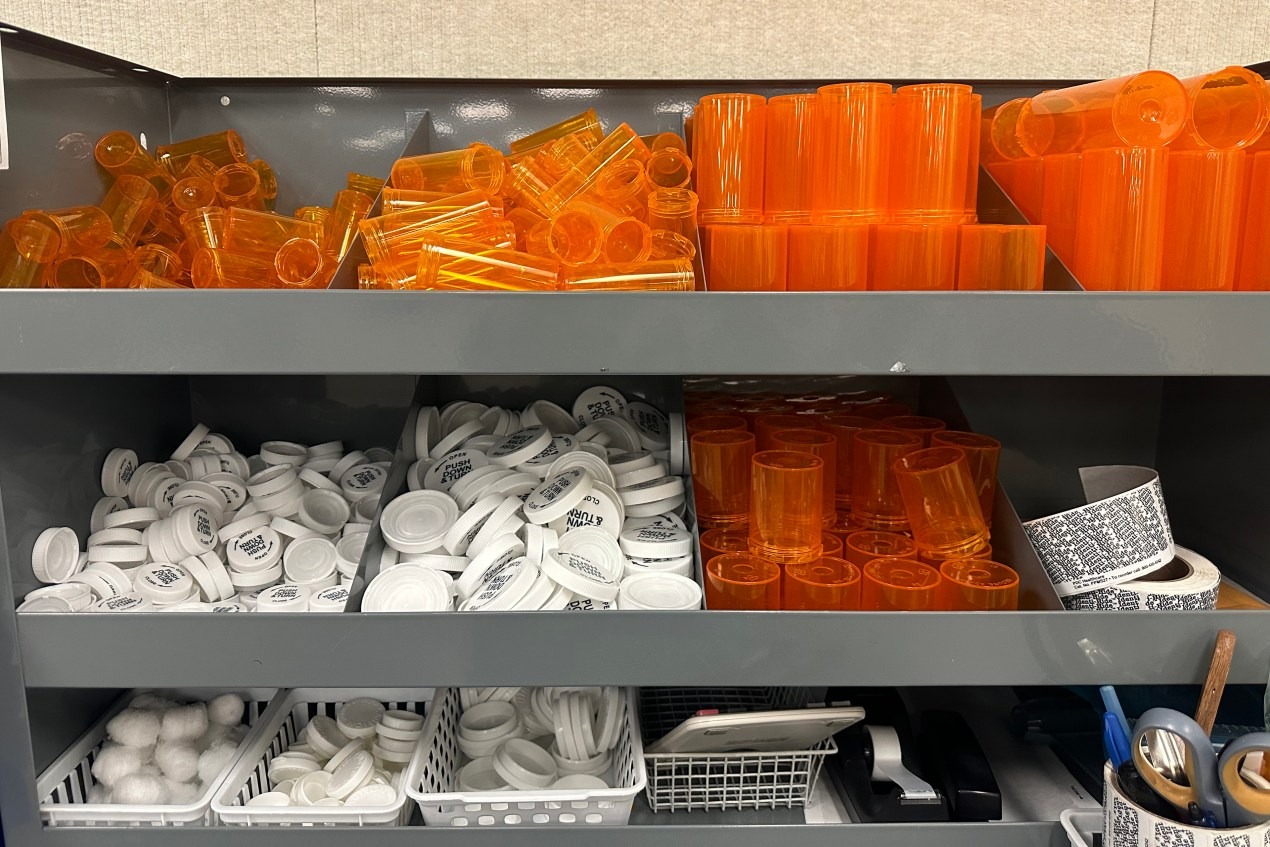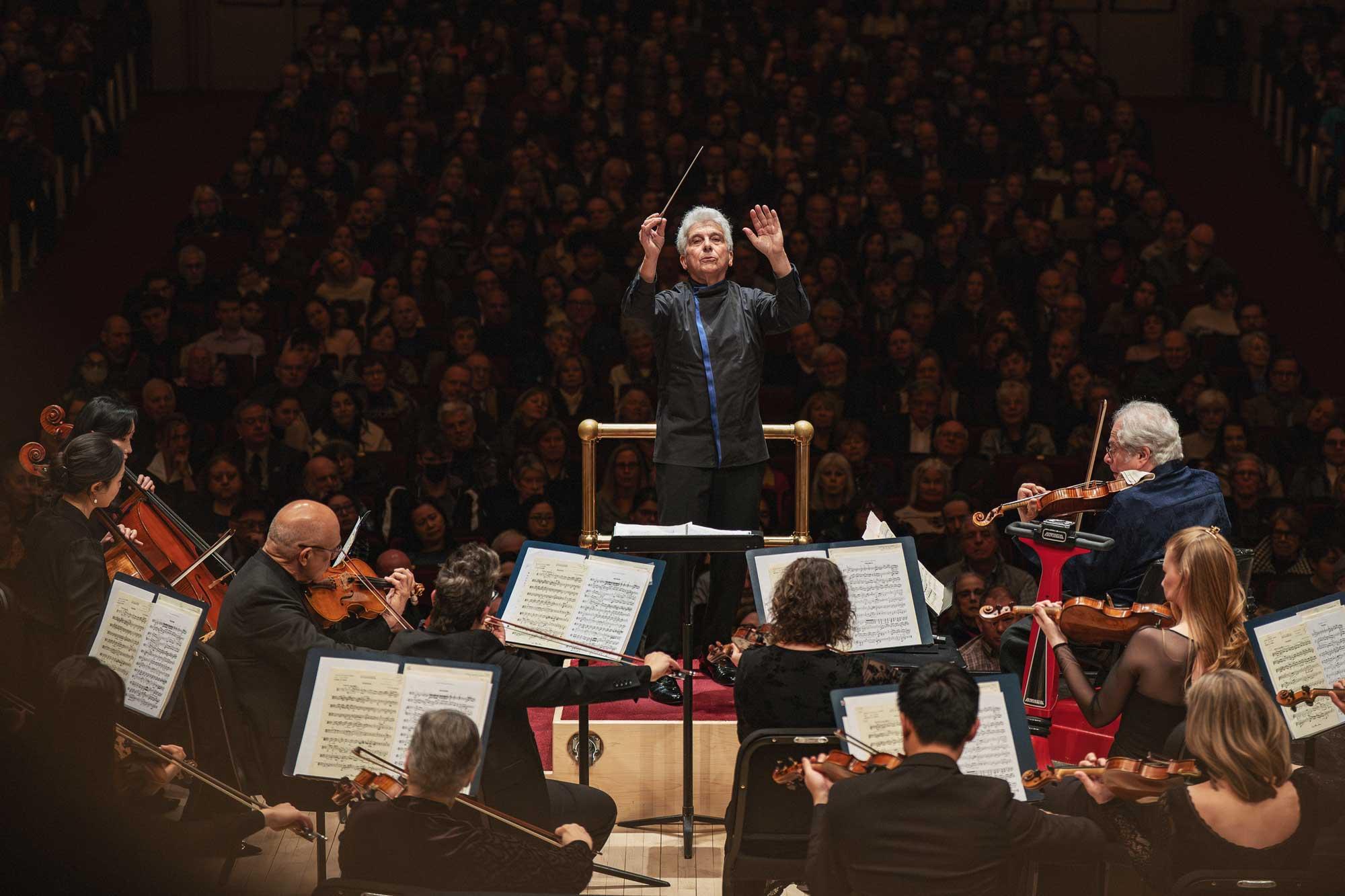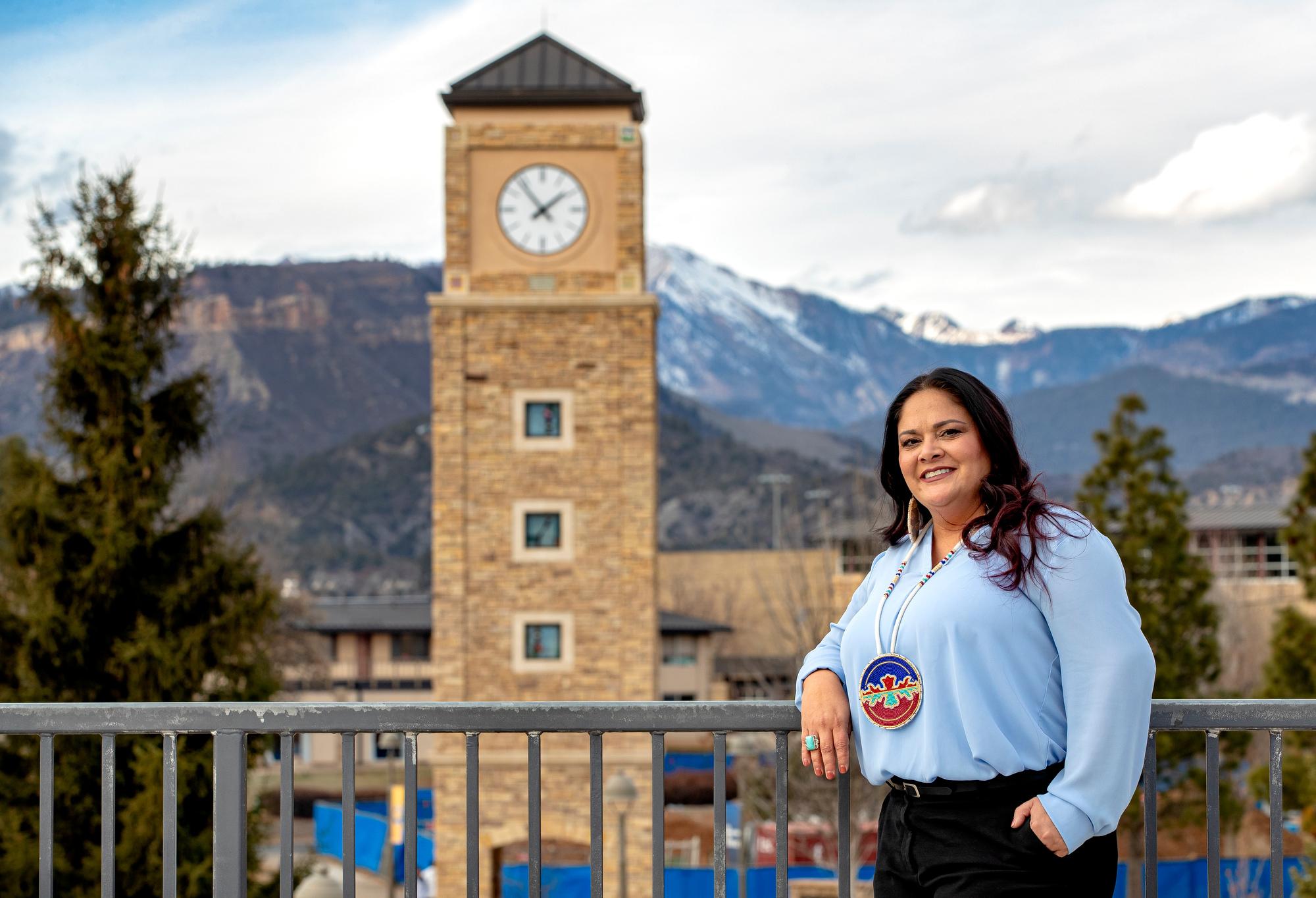
Indigenous students are a third of the student body at Fort Lewis College in Durango. But the school has never had an Indigenous president. Until now. Dr. Heather Shotton was just confirmed – a woman whose relatives survived the abusive boarding schools that preceded Fort Lewis College today.
Shotton spoke to Colorado Matters host Ryan Warner about her formative years, job readiness in rural Colorado, and seismic changes in education under President Trump.
This interview has been edited for length and clarity.
Ryan Warner: The job you're leaving to become president is Fort Lewis's vice president of diversity affairs. I just wonder off the bat, given the current climate, is that a position that you'll keep at Fort Lewis as president?
Heather Shotton: There are no plans to eliminate that role. So much of our work with our students around belonging, our work with first-generation students, preparing faculty and staff to support the diverse student population that we have here at Fort Lewis College, are central to who we are and that commitment remains.
Warner: You are a first-generation college student. I wonder if there's something you experienced that you want no kid ever to have to experience?
Shotton: That's a great question. I always say that my family and particularly my mother, while she never got to realize her desire or dream to go to college, always instilled in me a value of education and going to college was expected. What was challenging was I didn't always have the tools to understand how to navigate college. Forty-two percent of our student population are first generation. I want them to feel like they have every resource that they need.
Warner: I imagine just being in the presence of other first-generation students is helpful as opposed to feeling like some sort of pariah, but what was a tool you lacked that you hoped to give kids now?
Shotton: I think it was how did I understand things like what a credit hour was or how did you map out your course of study and how did I pay my bill? How did I understand what that bill meant? How did I navigate financing my education? Again, I had a very supportive family but that was new to them as well. So I was very fortunate to have mentors in college that were able to guide me. They really became my academic parents… having that community of other first-generation and successful first-generation college graduates and first-generation students to go through the experience with.
It's one of the things about Fort Lewis College that I value so greatly is that so much of our executive leadership team are all first-generation graduates. Many of the faculty and staff are first-generation, and so we really do highlight the people that our first-gen students can connect with across campus. There’s tremendous support across campus from folks who are really invested in supporting our first-gen students.
Warner: Dr. Shotton, I don't expect you to actually answer this question, but why do I still have nightmares decades after college about falling short of credits to graduate? I so resonate with just the fear around what a credit means and how many you needed, and were you going to land the proper number to be able to get that diploma!
Shotton: Absolutely. There are probably still some middle-of-the-night wake up from a nightmare of, ‘Oh no, I need one more class’!
Warner: Do I have it right that your daughter is a Fort Lewis graduate?
Shotton: Absolutely. She is a proud Skyhawk 2024 graduate with a public health degree.
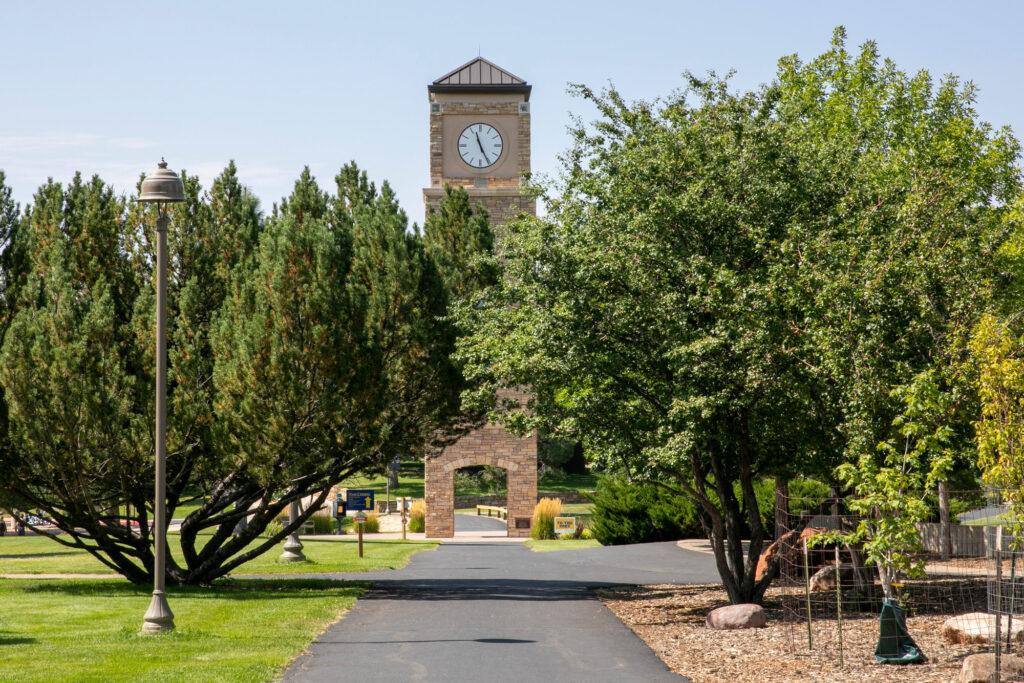
Warner: It made me wonder then when you look at your own mom, for whom education was very important, and then you look at your daughter graduating Fort Lewis, her mom is set to become the school's president. What do you see when you look down that generational pipeline?
Shotton: Oh, are you trying to make me cry? I think that it's not lost on me how significant this is for so many reasons. For me, as a first-gen student, for me as a descendant of boarding school survivors, for my daughters, it’s always been significant for them. They got to watch me go through the process of earning my PhD and becoming faculty, and then I was really fortunate to be able to be here at Fort Lewis College in my daughter’s last two years and get to experience her walking across the stage. It is not lost on me the significance of the changes just in one generation for my family and what that will mean, not just for my daughters, but my grandchildren, for my nieces and nephews, for my entire community that is representative of what is possible for our futures and that makes me immensely proud.
Warner: I hear you already lobbying to have your grandchildren attend Fort Lewis.
Shotton: Absolutely.
Warner: I want to discuss the balance between a liberal arts education and career readiness. I'm thinking specifically of southwest Colorado here, the balance between studying English or studying a foreign language or sociology and trying to build specific programs to meet rural workforce needs.
Shotton: I actually don’t see those two as mutually exclusive. I think the value of a liberal arts degree prepares our students to be critical thinkers, to be leaders, to engage in evolving industry needs, who can adapt. I think coupled with workforce readiness and career readiness, that those two really go hand in hand for me.
Warner: Speak to the out-of-work English major.
Shotton: My bachelor’s degree is in the humanities. My bachelor is in Native American studies. That prepared me in a way that I still use today, the ability to assess policy, to understand historical arcs and organizational structures and how people interact. Those have all been critical skills that I developed in a degree that is within the humanities. I think our students here at Fort Lewis College, we’re really preparing them for jobs that don’t even exist yet. We are looking at an ever-evolving workforce and industry needs.
Warner: If you look at a particular job workforce, is there one that springs to mind that you're trying to tailor programs to?
Shotton: When we look specifically at this region, rural Colorado, the evolving needs around the health care industry. A great example of that is our partnership with CU Anschutz with our new nursing program that is focused specifically on rural and Indigenous health and how we are able to continue to meet the needs of this region in our community and again, our changing workforce.
Warner: You mentioned having studied Native American studies. You are a citizen of the Wichita and Affiliated Tribes. I don’t know if that was powerful to see perhaps your own experience reflected in a curriculum or whether given the Indigenous student population at Fort Lewis, that’s still something that resonates for students today?
Shotton: It was life-changing for me to be able to have Indigenous professors. That changed so much for me and allowed me to see different possibilities for myself, to see myself reflected at the front of the classroom — that was a new experience for me. To learn about content that was relevant to me and relevant to what I wanted to do. I wanted to be able to give back to my community and learning about tribal sovereignty and policy and tribal governance and the history of Indigenous education really did have such a huge impact on me and opened up a whole world of possibilities for what I could do, how I could apply that knowledge and the skills that I gained in that kind of degree program.
Warner: Fort Lewis College has a federal designation as a Native American Serving Non-Tribal Institution, so that means at least 10 percent of the population of a school is Indigenous. Yours is actually 34 percent, more than a third, and that allows a college to apply for federal grants to help serve Indigenous students. Noting that the Trump administration recently cut the federal Department of Education staff in half with promises to dismantle it, are you worried about the grants you get as a Native serving institution?
Shotton: I think evolving policy at the national level is something that I’m keeping an eye on that our entire leadership is keeping an eye on, and we continue to advocate. We know the impact of funding from the Department of Education, particularly through Title III, through TRIO and how that impacts our students in such positive ways.
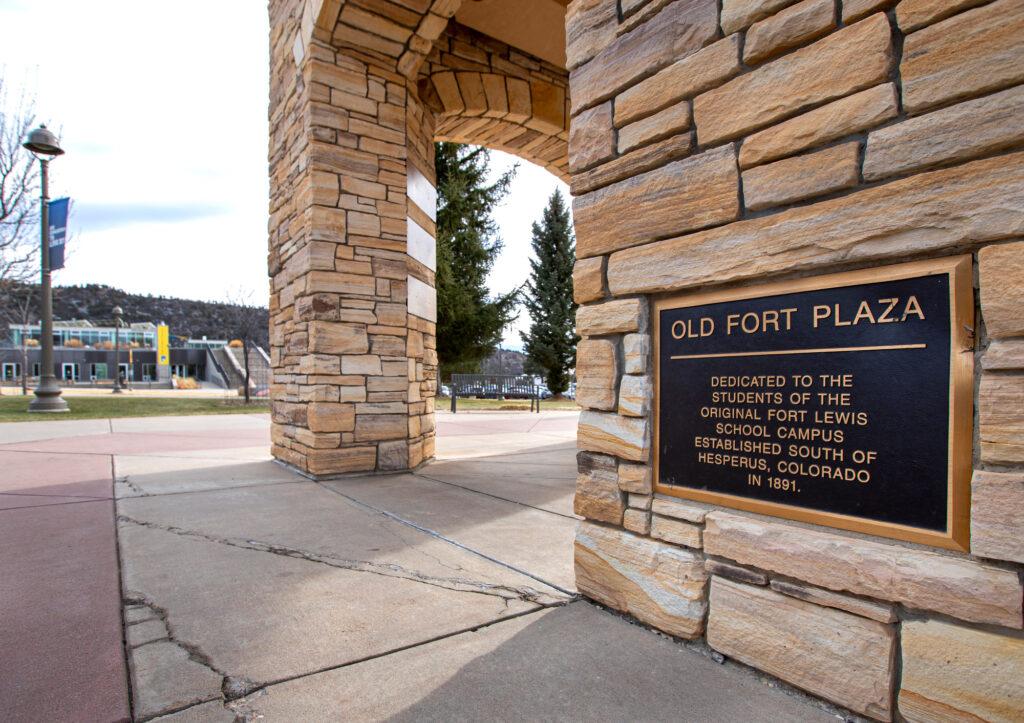
Warner: I think I hear you saying we just don't know yet.
Shotton: There is uncertainty, absolutely. We know the impact of programs that come out of the Department of Education like Pell Grants, federal funding, financial aid, what that means for our students, and we will advocate for all of those TRIO programs, which are our federal outreach student services for individuals from disadvantaged backgrounds. Funding for Native American-Serving Non Tribal Institutions is available under Title III of the Higher Education Act of 1965.
Warner: State lawmakers have proposed far less for colleges and universities next year than what higher ed requested, but they have given colleges some leeway to raise tuition. Fort Lewis is one of the more affordable colleges to attend in Colorado, but will you have to hike tuition for next year?
Shotton: That remains to be seen. We are going through our preliminary budget process right now, and as I come into this role, that is something that we’ll have to discuss, but again, what is important for us is that we continue to be affordable, that we are not creating financial barriers for students at Fort Lewis.
Warner: Is this the part of being a university president that you like the least? Just curious.
Shotton: I wouldn’t say that I like the least. It is an important part of the role.
Warner: A century ago, Fort Lewis College was a federally operated boarding school, a site where many children died. In the process of being assimilated, you’ve led the implementation of the Fort Lewis College Reconciliation plan. What is something concrete that has come out of that?
Shotton: I think one of the pieces that is really concrete is the healing that has begun across campus and the way that we have been able to shift our focus on wellness.
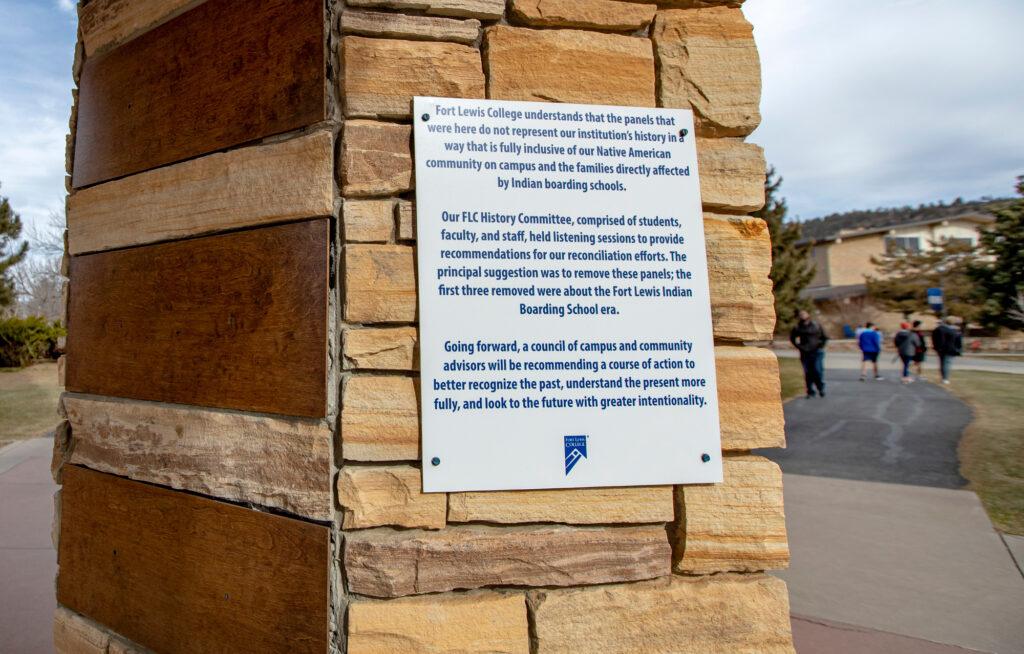
Warner: Wellness. What does that mean in the context of a college student?
Shotton: It means a lot of things. We think about both physical wellness, mental health, making sure that our students have access to adequate housing, to not just food, but cultural food that students are finding community and have a sense of belonging and that we are attending to the whole student.
Warner: It's interesting. I had the pleasure of going to Tocabe, which is an Indigenous restaurant in Denver. They've opened a marketplace to connect consumers with indigenous growers, for instance, of culturally relevant foods. Does that resonate? Is that something I hear you saying Fort Lewis is attempting to do?
Shotton: Absolutely. By the way, I love Tocabe. I will eat their bison ribs every time I go there. My favorite! But I love what that represents. I think about the work we’ve been able to do out at the old Fort. That is another concrete example of the reconciliation work through the traditional garden that they have — our Farmers-in-Training program and the way that we've been able to connect the food that has grown out at the old Fort to the campus community and students are able to access fresh, culturally relevant foods.
Warner: And when you make reference to the old Fort, you're speaking of the laden history of the first campus.
Shotton: The old Fort is where the original boarding school was. What was an actual Fort, the military fort and then the Fort Lewis Indian Boarding School. Yes.
Warner: I understand that one of your goals is to grow Fort Lewis College’s regional and national reputation, and it always makes me wonder when smaller schools have big hopes, why not just focus on Durango and Southwest Colorado or the Four Corners? There’s no place like it elsewhere on earth, and it's such a diverse landscape and such a diverse populace. Why do you have your sight set beyond it?
Shotton: Well, I think it's both/and, right? There's definitely a responsibility to Durango to the Four Corners region as one of the main institutions of higher education in this region, and as a rural institution, we have a responsibility to this community. You said it perfectly. There are things that you can only do at Fort Lewis. Our approach to education, our approach to serving our students, the amazing work that our faculty are doing. I think there’s a lot that we can share with other folks across the country, and I want to embrace that opportunity.
Warner: Thank you so much for being with us and congratulations.
Shotton: Thank you.

